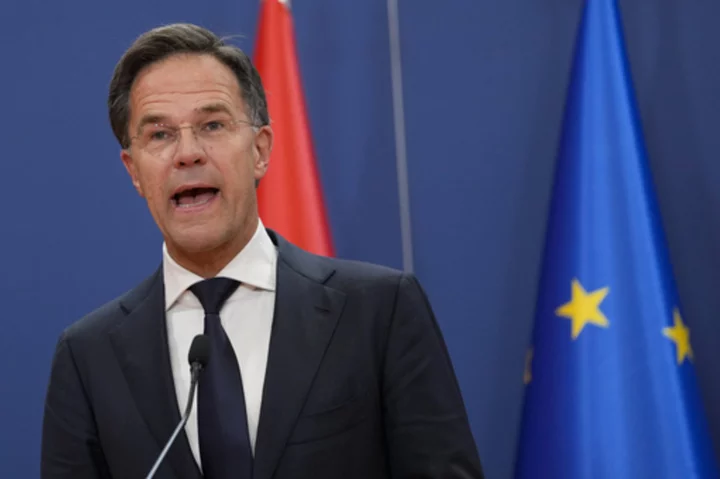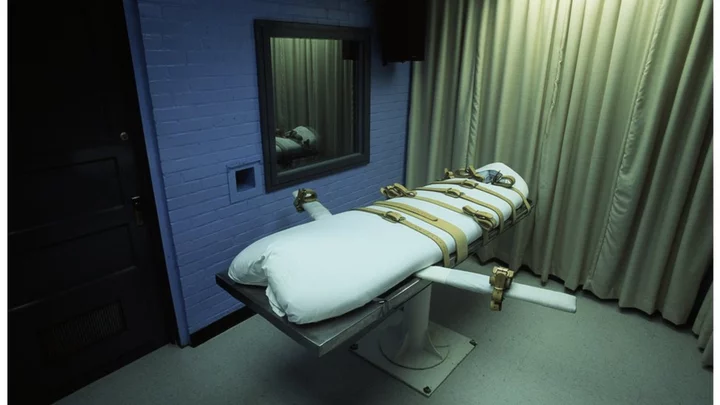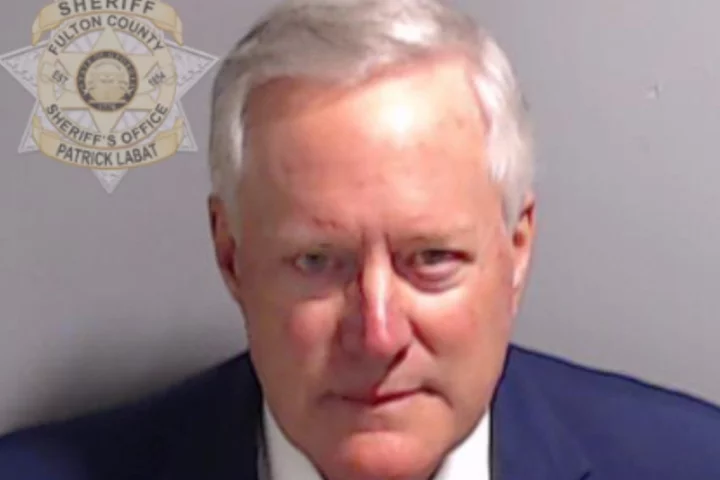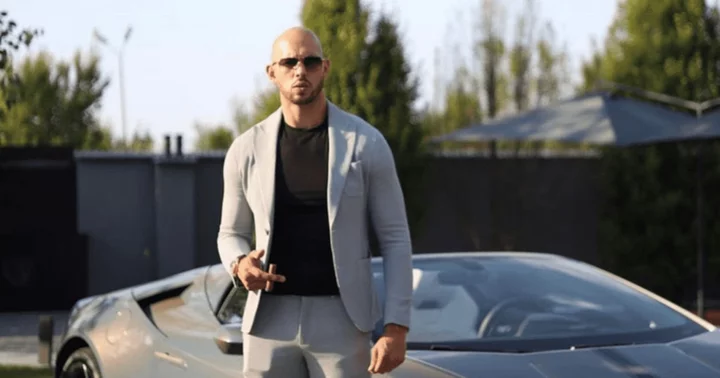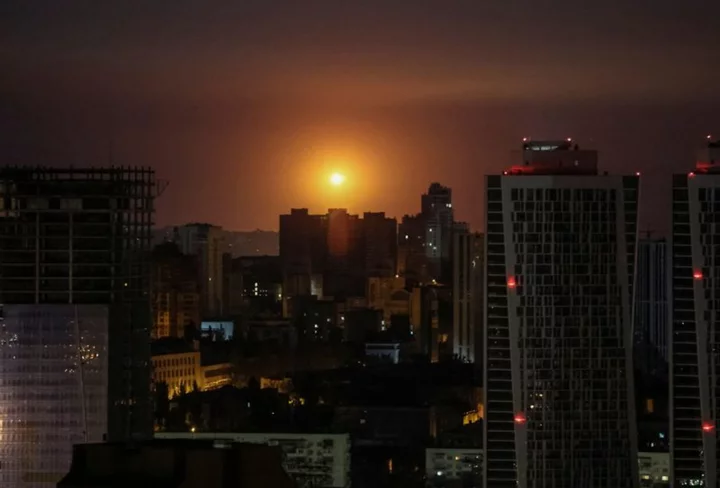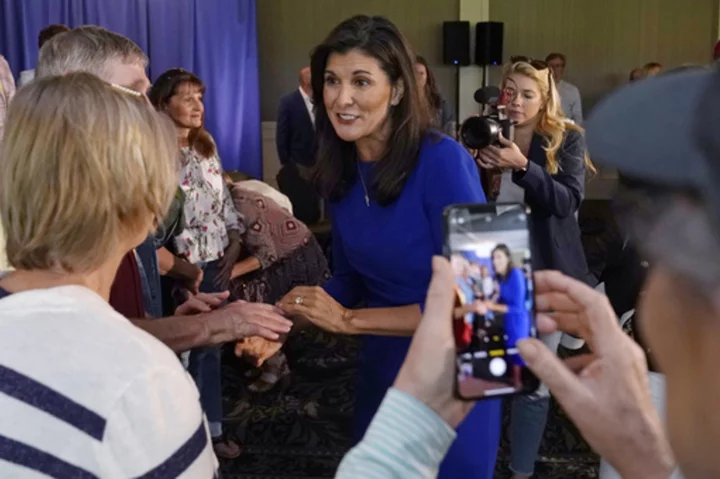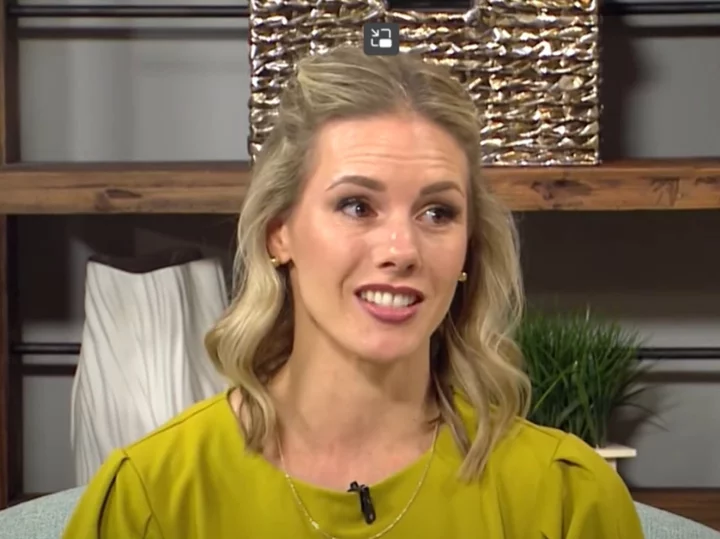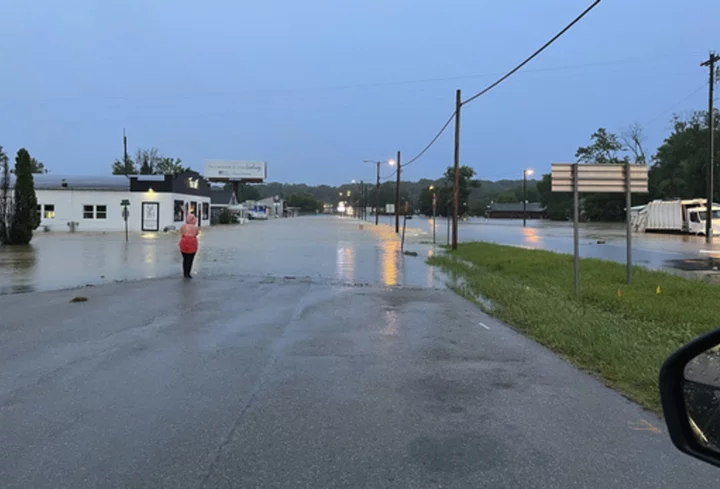THE HAGUE, Netherlands (AP) — The ruling Dutch coalition collapsed Friday after tense talks among the four parties in Prime Minister Mark Rutte’s ruling bloc failed to broker a deal over ways to rein in migration, a senior politician said.
Henk Kamp, a senior member of Rutte's People's Party for Freedom and Democracy told Dutch television: “It is a great shame that the government has now fallen.” The failure of months of talks on the thorny issue could now force a general election.
Rutte's Cabinet gathered late Friday in a hastily scheduled meeting. “We talked for a long time, we are coming here tonight because we did not succeed,” Defense Minister Kajsa Ollongren told reporters as she walked into the Cabinet meeting.
Meanwhile, opposition lawmakers wasted no time in calling for fresh elections.
Geert Wilders, leader of the anti-immigration Party for Freedom, tweeted, “Quick elections now.” Jesse Klaver, leader of the Green Left party also called for elections and told Dutch broadcaster NOS: “This country needs a change of direction.”
Rutte, the Netherlands’ longest serving premier, presided over late-night meetings Wednesday and Thursday that failed to result in a deal. More talks were held Friday evening, and he declined to answer questions about the issue at his weekly press conference before the discussions.
“Everybody wants to find a good, effective solution that also does justice to the fact that this is about human lives,” Finance Minister Sigrid Kaag, a member of the centrist D66 party, said before the talks began.
The discussions have underscored ideological divisions in the coalition between the partner parties that do not support a strict crackdown on migration — D66 and fellow centrist party ChristenUnie, or Christian Union — and the two that favor tougher measures — Rutte's conservative People's Party for Freedom and Democracy and the Christian Democrats.
The coalition tried for months to hash out a deal to reduce the flow of new migrants arriving in the country of nearly 18 million people. Proposals reportedly included creating two classes of asylum — a temporary one for people fleeing conflicts and a permanent one for people trying to escape persecution — and reducing the number of family members who are allowed to join asylum-seekers in the Netherlands.
Last year, hundreds of asylum-seekers were forced to sleep outdoors in squalid conditions near an overcrowded reception center as the number of people arriving in the Netherlands outstripped the available beds. Dutch aid agencies provided assistance.
Just over 21,500 people from outside Europe sought asylum in the Netherlands in 2022, according to the country’s statistics office. Tens of thousands more moved to the Netherlands to work and study.
The numbers have put a strain on housing that already was in short supply in the densely populated country.
Rutte’s government worked for a law that could compel municipalities to provide accommodations for newly arrived asylum-seekers, but the legislation has yet to pass through both houses of parliament.
The prime minister also promoted European Union efforts to slow migration to the 27-nation bloc. Rutte visited Tunisia last month with his Italian counterpart and the president of the EU’s executive commission to offer more than 1 billion euros in financial aid to rescue the North African nation's teetering economy and to stem migration from its shores to Europe.
Rutte's coalition government, the fourth he has led, took office in January 2022 following the longest coalition negotiations in Dutch political history.
There will likely be an election for the 150-seat lower house of the Dutch parliament later this year amid a polarized and splintered political landscape. Rutte's Cabinet would likely remain in office as a caretaker administration until a new government was formed.
During provincial elections earlier this year, a populist pro-farmer party put Rutte’s party into second place. The defeat was seen as a possible incentive for Rutte to do his utmost to hold together his coalition until its term ends in 2025.
___
Follow AP’s coverage of migration issues at https://apnews.com/hub/migration

